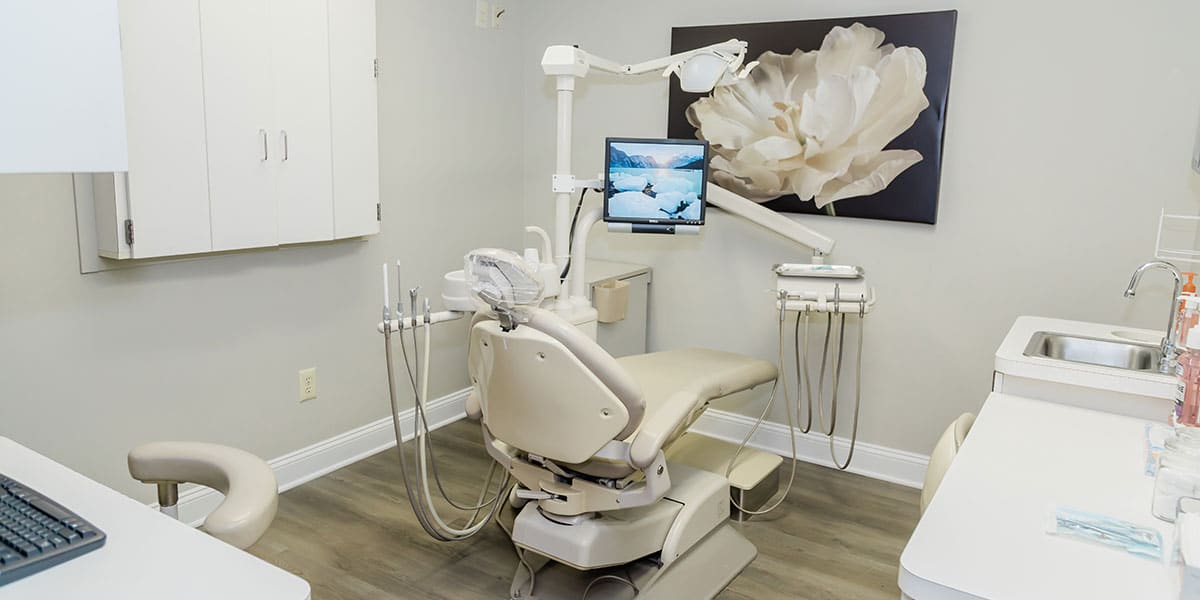What do I do when I have a dental emergency?
Hi, I'm Dr. Lyons from Lyons Family Dentistry. Dental emergencies are usually very painful, and they can range from the smallest ones to really big ones. If you just chip a tooth, it can be fixed with a filling or crown. If you split the tooth, you may need to have it extracted, and you might need an implant placement. If you're swollen, you probably need an antibiotic first to control the infection and then assess the situation to see what else can be done, like a root canal or extraction.
But I want to bring up the importance of different types of emergencies, especially for younger people. Some sports activities can result in a knocked-out permanent tooth. If it's a baby tooth, you don't have to worry that much, but if it's a permanent tooth, you have only one. If it gets knocked out, timing is of the essence. You have to call us right away because that tooth can be saved if we re-implant it within a half hour to 45 minutes. The best way is to definitely keep the tooth in a moist environment, like in water or a wet tissue, and call your dentist immediately. We always have somebody on call. So if you need an emergency, please call us at (609) 298-8309.
What is emergency dentistry?
Emergency dentistry addresses urgent dental issues that require immediate attention, like severe toothaches or dental trauma. At Lyons Family Dentistry, we prioritize emergency care. If a patient is in pain, we might reschedule regular appointments to accommodate them promptly. Emergencies can arise from broken or cracked teeth, extractions, abscesses, infections, swelling, or fevers. We offer 24-hour calls for severe cases and can arrange weekend appointments or assist with medications like antibiotics and pain relief.
When should I see an emergency dentist?
The need to see an emergency dentist depends on the severity of your pain. If you're experiencing severe pain, it's crucial to contact your dentist for immediate attention. Hospitals usually don't have dentists on staff, so you might face long waits without proper dental care. For quick relief, an emergency dentist is your best option.
Can gum issues be an emergency?
Yes, gum issues like bleeding gums can be considered a dental emergency. It can be quite alarming for patients, but solutions are available, such as medication, scheduling an appointment, or immediate treatment.
What about tooth sensitivity?
Tooth sensitivity generally can be addressed during a regular dental appointment. However, if you experience increasing sensitivity or severe pain after a procedure, such as a crown or root canal, you should call the emergency line at your dental office.
What if my denture or crown breaks?
A broken or loose denture or crown, especially if it's in a visible area like a front tooth, is considered a dental emergency. You should contact your dental office immediately, and they will have staff available to assist you.
When do I need an emergency extraction?
Emergency extractions may be necessary if there's an infection present. In such cases, antibiotics are often prescribed first to help numb the area effectively. However, if extraction is urgent due to pain or swelling, it will be performed immediately. Planning for future treatments like implants may also involve bone grafting during the extraction process.
What are the pain and anesthesia options during emergencies?
For emergency procedures, local anesthetic is provided to ensure numbing. We understand that dental visits can be intimidating, so we also use nitrous oxide to reduce anxiety and ensure comfort. Additionally, conscious sedation is available for deeper anesthesia, allowing you to have little to no memory of the procedure.
Do you offer same-day and late-hour care?
Yes, we offer same-day care for dental emergencies. We recognize the urgency of true toothaches and can accommodate after-hours or weekend emergencies. Our staff is always on call to assist. Please contact us at (609) 298-8309 for emergency care.

During office hours, immediate attention will be given to your situation, and you will be seen as soon as possible. After office hours, please give the office a call and follow the instructions provided. Your call will be returned as soon as possible. If you are experiencing a serious or life threatening emergency, please call 911 or visit the nearest emergency room.
Below are instructions for handling some minor common dental emergencies:
In the case of a toothache:
Gently clean the area around the tooth by rinsing the mouth with warm water and gently flossing to remove any particles that may be lodged in the tissue around the tooth. If the pain continues, or if the area around the affected tooth is warm, please call our office to schedule an appointment.
If a lip, gum, cheek, or tongue gets cut:
Apply ice to help reduce swelling and apply pressure with a clean cloth or sterile gauze to stop any bleeding. If the bleeding continues, call your physician or visit your local emergency room.
If a baby tooth gets knocked out:
Please call our office to schedule an appointment.
If a permanent tooth gets knocked out:
Call our office right away and take these steps.
- Do not touch the tooth root, but hold the tooth by the crown and gently rinse the tooth with water.
- Place the tooth back into the socket as quickly as possible and bite down on clean gauze to hold it in place.
- If the tooth cannot be placed in the socket, put the tooth in a small container of milk or saliva and bring it with you to your appointment.
If a tooth gets chipped or broken:
Gently rinse the area with lukewarm water and place a cold compress on the face to reduce swelling. If you can locate the piece of broken tooth, place the piece in milk, and bring it with you to the office. If more than half of the tooth is broken off, please call us immediately.

